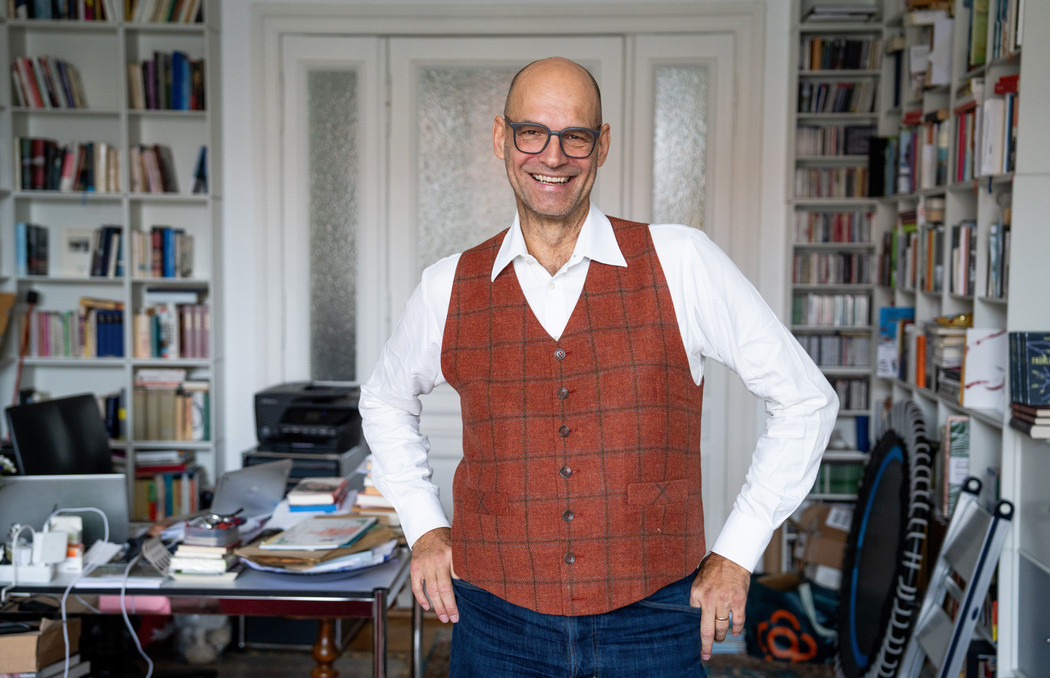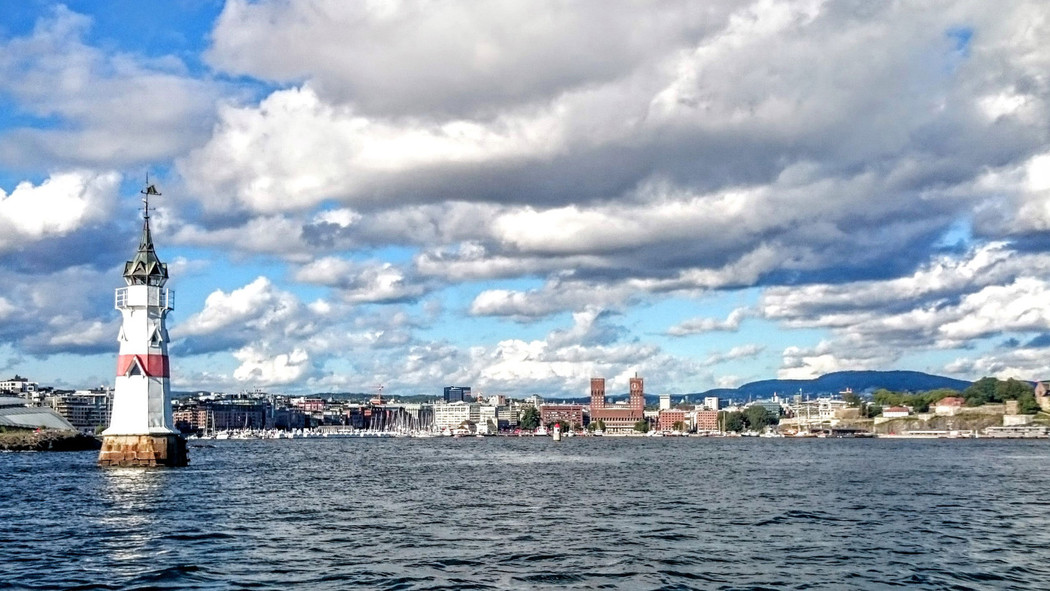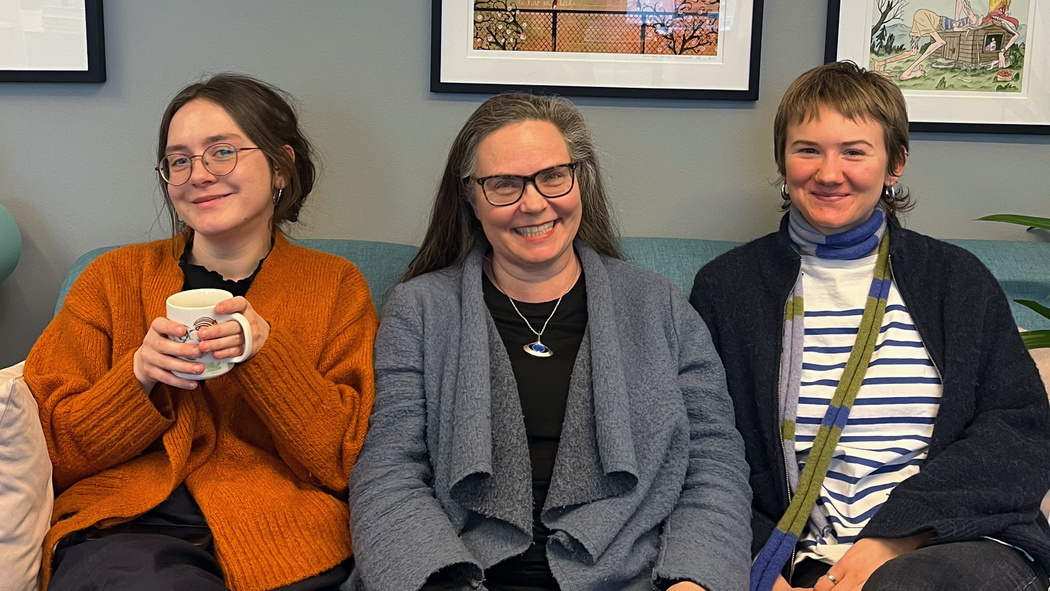Why I translate Fosse: Hinrich Schmidt-Henkel
Jon Fosses German translator Hinrich Schmidt-Henkel discovered Fosse by chance at a NORLA seminar in 1992. Here, he discusses the joy and challenges of translating the Nobel laureate, and trusting the power of simplicity.

At a formal ceremony held at the Royal Palace on April 24, Hinrich was awarded the first Fosse Prize for translators of Norwegian literature. The award was presented by HRH Crown Princess Mette-Marit, who is the ambassador for Norwegian literature abroad. Congratulations!
Where were you when you found out that you had become winner of the first ever Fosse Prize for translators of Norwegian literature?
I was at my cabin, somewhat tired after working in the garden that evening – and checked my email, dutiful freelancer that I am, to find that I received an email from the National Library. Its subject was “Fosse Prize for Translators” and contained just four lines from the person concerned saying they were pleased to be sending me a letter from the director of the National Library, kind regards and looking forward to hearing from you. I thought something like, oh, that was a bit long-winded, why are they writing to me, do they want to ask me questions about this award or something? At the same time, there was a sense of “no, that would be totally unthinkable, no, impossible” dawning upon me – I sat and read while understanding and not understanding what I had before my eyes, as one usually does when reading something overwhelmingly big … And then I shed a few small tears of joy and had at least one glass of better white wine to toast with my husband (there was no champagne in the fridge … but an abundance of it a bit later). And then I had to wait almost! three! weeks! until it became official and I could talk about it – God, give me patience, but right away!
How did you become interested in the Norwegian language?
My family was truly Scandophile. When I had a Norwegian boyfriend as a 25-year-old, I knew Danish and Swedish and started transforming everything into Norwegian, deepening my knowledge through books and staying in Norway. And my boyfriend was a great teacher.
Where were you when you found out that Jon Fosse was awarded the Nobel Prize in Literature 2023?
I was sitting by my computer, facing an imminent deadline for Lars Mytting’s novel Skråpånatta. I was so immersed in work that I almost forgot to follow the Swedish Academy’s live stream – I couldn’t find it in all the fuss – and then a good friend of mine called… When I saw her name on the display, I knew what had happened. (And suddenly my schedule became even tighter.)
How was your first encounter with a text by Jon Fosse?
At a NORLA seminar for German translators in 1992 (?) there was a table showcasing books that hadn’t yet been translated. I randomly picked up two stories by a certain Fosse, and I couldn’t help being intrigued by his strange style. I remembered that when discovering in 1995 that the same Fosse had started writing plays, something I definitely wanted to check out.
Why do you translate Fosse?
I love his love for his characters, his stylistic consequence, his modest megalomania.
What’s the greatest challenge translating Fosse?
Don’t embellish. Don’t choose fancy words. Don’t embellish. Don’t turn the sentences for poetic effect. Don’t embellish. Trust the power of simplicity. (A really good preparation for translating Vesaas, by the way).
Do you have a Fosse favorite?
I’m hesitant. Melancholia – Lars’ despair and emotional dimension. His sister’s death, depicted with such an intensity that it alters the reader’s physical body perception. Morning and Evening, of course. The meditative ecstasy of the Septology. The pauses in the plays. All the plays. The Trilogy. Scenes from a Childhood. The poems.
What’s your fondest memory as a translator?
Seeing a Fosse play on a stage for the first time and realising that it really works, which I had been convinced it would, but seeing it in reality. Even the odd humour that I thought I had detected in the text, was there.
What question should we have asked you?
About the triumph of Nynorsk as a literary language. Norway’s fourth Nobel Prize in Literature is a tribute to the literary qualities of Nynorsk. That’s a slightly under-communicated sensation in all of this.
Learn more
Read Hinrichs acceptance speech here
See the complete ceremony from the Royal Palace here (Please click “CC” in the right hand corner to choose subtitles in English)
- From 01:03 you will find the wonderful acceptance speech by Hinrich Schmidt-Henkel
See also this great introduction video by the National Library of Norway with Hinrich Schmidt-Henkel here (please choose subtitles)
Get to learn more about Hinrich Schmidt-Henkel and Jean-Luc Marion here
See the National Library of Norway’s information and details on all events here
(please scroll down for information in English)
See all the interviews in the Why I translate Fosse-series here


